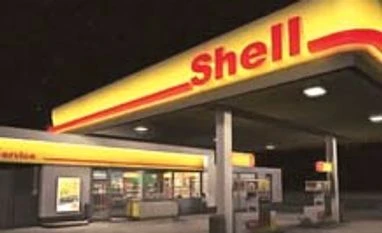Anglo-Dutch giant Shell has become the first international oil group to announce that it had held talks with Iran about potential investment should sanctions be lifted as part of a nuclear deal with the West.
Shell representatives met Iranian officials in Tehran "recently", according to a statement from the oil group.
They discussed Shell's outstanding debt to the government- owned National Iranian Oil Company for crude lifted but not paid for, "and potential areas of business cooperation should sanctions be lifted."
Any agreement could result in Iranian crude returning to the world market.
An agreement was reached in April on the main outlines of what would be a historic deal scaling down Tehran's nuclear programme.
In return, the world powers agreed that sanctions would be progressively lifted if regular inspections confirm that Tehran is sticking to the accord.
Iran has the world's fourth largest proven oil reserves and the second biggest gas deposits.
Under an interim deal that came into effect in January 2014, which gave some relief from sanctions, Iran has been allowed to maintain its crude oil exports at around 1.2 million barrels per day.
But that is a fraction of what exports were previously -- Iran was shipping 2.5 million bpd of crude abroad in late 2011.
Shell representatives met Iranian officials in Tehran "recently", according to a statement from the oil group.
They discussed Shell's outstanding debt to the government- owned National Iranian Oil Company for crude lifted but not paid for, "and potential areas of business cooperation should sanctions be lifted."
More From This Section
Iran and the so-called P5+1 powers - Britain, China, France, Russia and United States, along with Germany - are racing to agree a deal by June 30 that would see Tehran open up its nuclear programme to allay concerns it is seeking atomic weapons, in return for the West lifting punishing economic sanctions.
Any agreement could result in Iranian crude returning to the world market.
An agreement was reached in April on the main outlines of what would be a historic deal scaling down Tehran's nuclear programme.
In return, the world powers agreed that sanctions would be progressively lifted if regular inspections confirm that Tehran is sticking to the accord.
Iran has the world's fourth largest proven oil reserves and the second biggest gas deposits.
Under an interim deal that came into effect in January 2014, which gave some relief from sanctions, Iran has been allowed to maintain its crude oil exports at around 1.2 million barrels per day.
But that is a fraction of what exports were previously -- Iran was shipping 2.5 million bpd of crude abroad in late 2011.
)